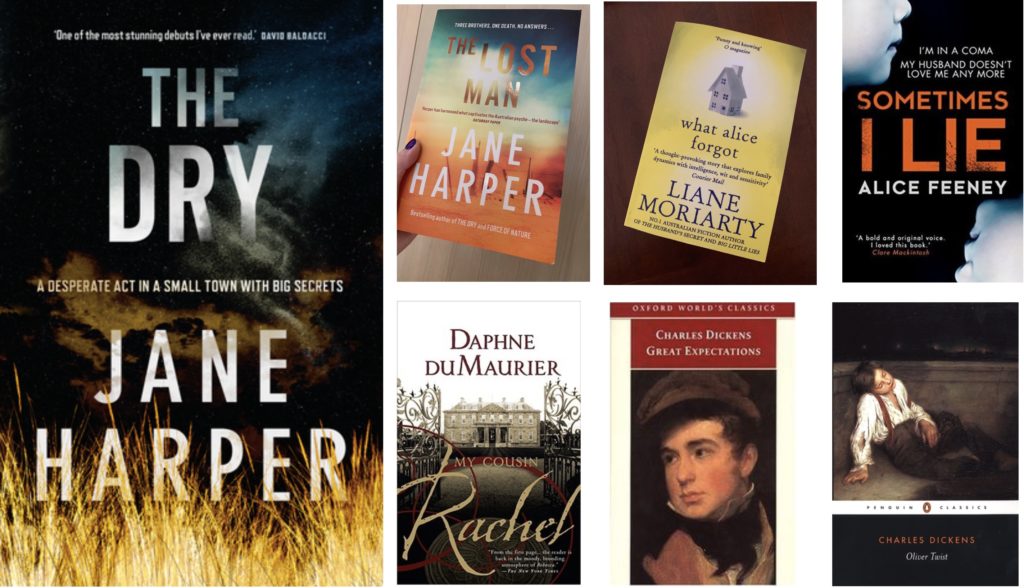While exploring other book blogs after I came home from my vacation, I discovered the 6 DEGREES OF SEPARATION MEME.
I was immediately drawn to it because I like the way it makes me think about how the books I read may be related. Here, from the meme description page, is how it works:
Books can be linked in obvious ways – for example, books by the same authors, from the same era or genre, or books with similar themes or settings. Or, you may choose to link them in more personal or esoteric ways: books you read on the same holiday, books given to you by a particular friend, books that remind you of a particular time in your life, or books you read for an online challenge.
The great thing about this meme is that each participant can make their own rules. A book doesn’t need to be connected to all the other books on the list, only to the ones next to them in the chain. . .
If this kind of exercise appeals to you, too, you can find out all about how to participate by checking out Kate’s 6 Degrees of Separation Meme page at her blog, Books Are My Favourite and Best.
This month’s exercise begins with Jane Harper’s debut best-seller, The Dry. I was impressed enough with The Dry that I immediately bought Harper’s second novel, and second in the Aaron Falk series, Force of Nature.
1. Having become a fan of Harper’s writing, I bought her next book, The Lost Man (a standalone novel) while we were traveling in Australia.
2. I also bought another book in Australia, by another Australian author: What Alice Forgot by Liane Moriarty. In this novel, Alice wakes up after a head injury with no memory of the most recent 10 years of her life.
3. Sometimes I Lie by Alice Feeney features a lead character, Amber Reynolds, who also wakes up in a hospital after a head injury with little memory of what happened to her. Amber warns us right up front: “Sometimes I lie.”
4. But not all unreliable narrators are downright liars. Some are just naive, like Philip in Daphne du Maurier’s novel My Cousin Rachel. Philip was raised from young childhood by his much older cousin, Ambrose, who designates Philip as his heir.
5. Another orphaned child raised by a relative is Pip in Great Expectations by Charles Dickens.
6. Of course, it’s impossible to discuss Dickens and orphans without mentioning one of his best known works, Oliver Twist.
Isn’t that a long and twisty path, from Australia all the way back to England, the country that sent its prisoners to colonize the land down under?
© 2019 by Mary Daniels Brown

